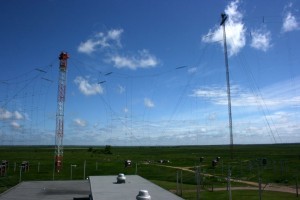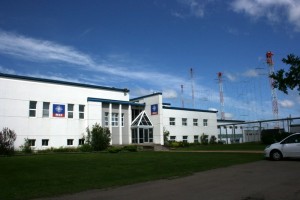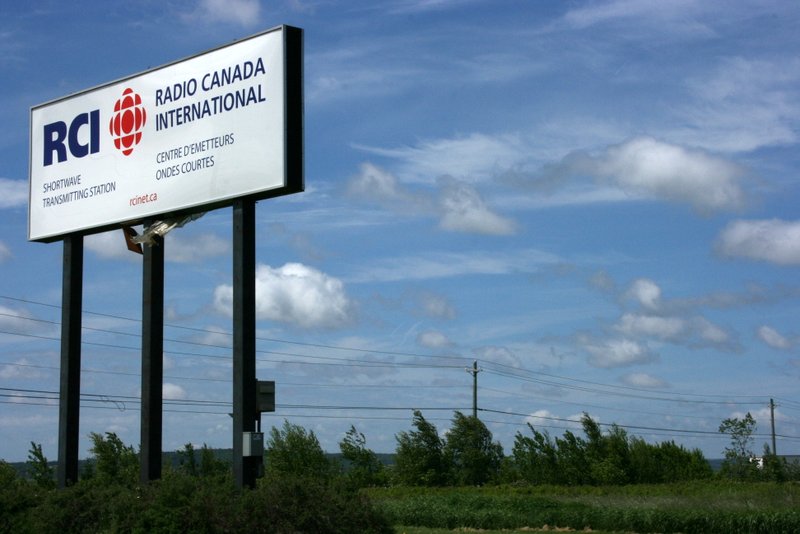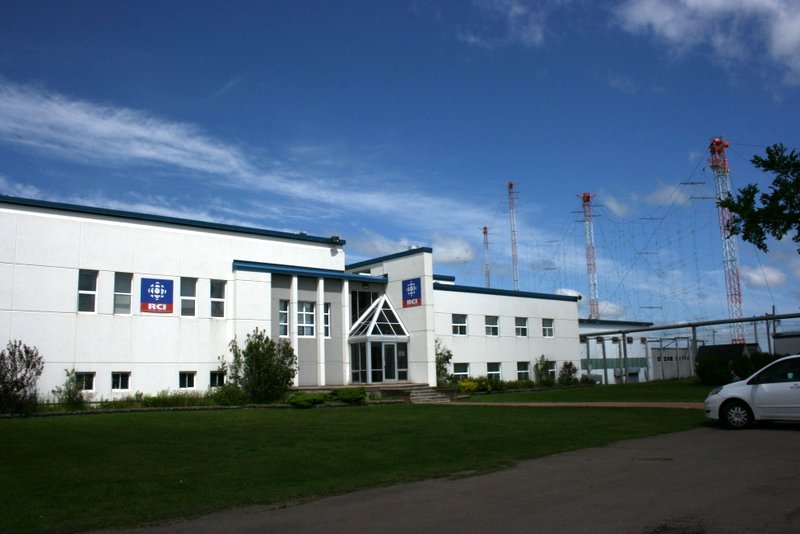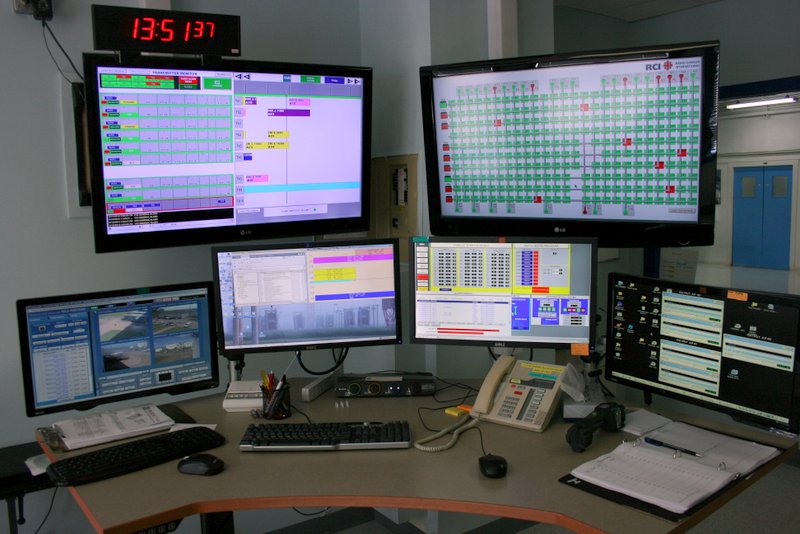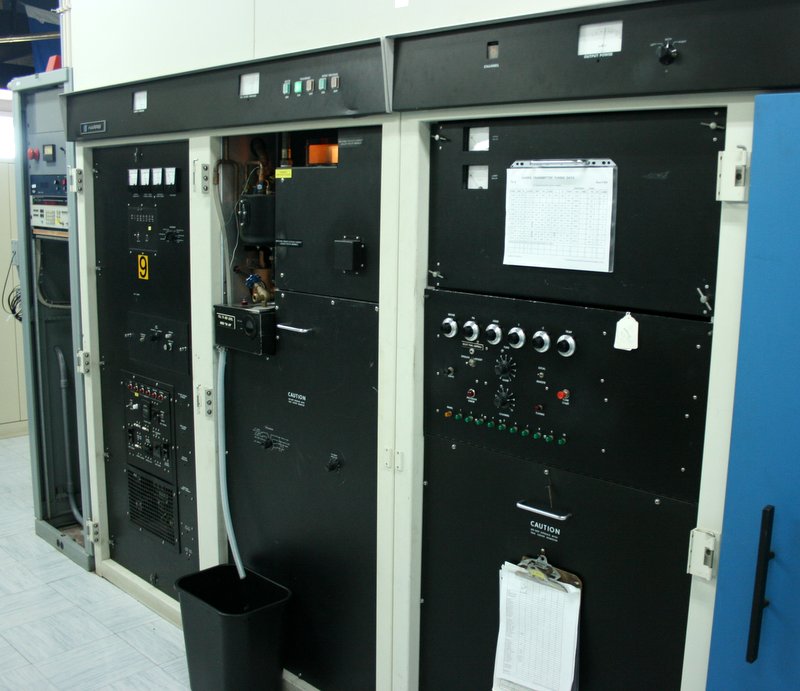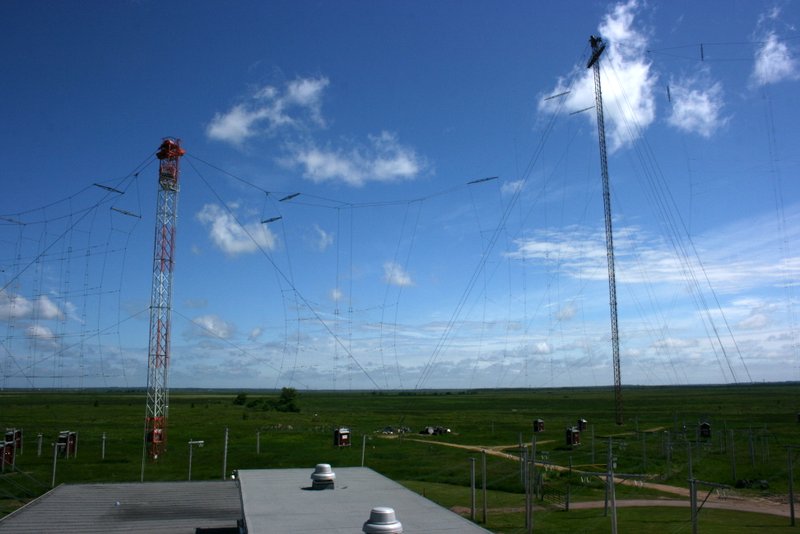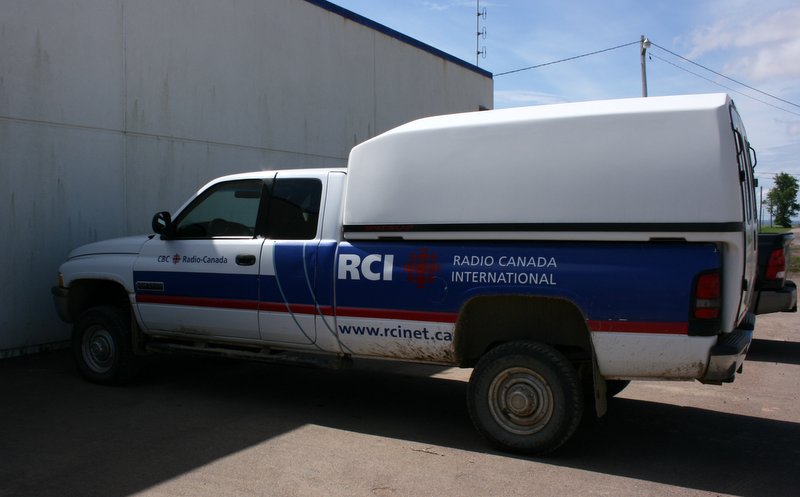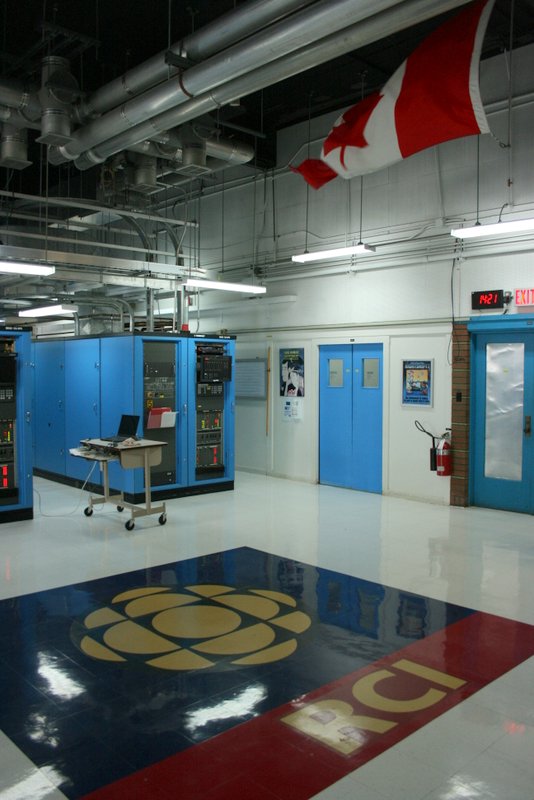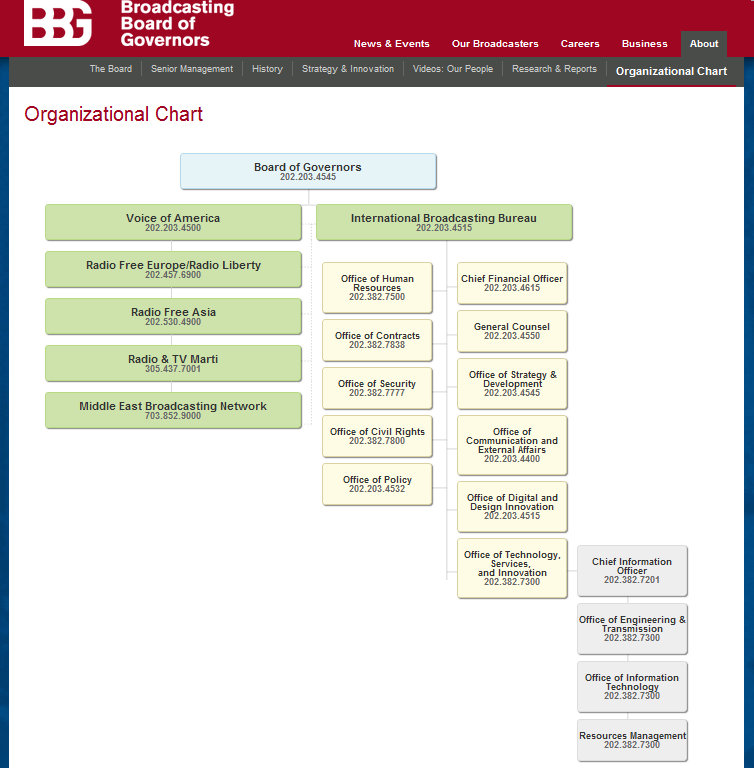Just posted by CBC News: a breaking news item which focuses on the closure of the Sackville RCI transmitter site and reveals the fact that site owners are now looking for buyers.
During my recent visit to the Sackville site, I spoke with their Transmission Operations Technologist, Marcel Cantin; we both agreed that the most likely future of the transmitter site is to become a wind farm, much like one visible from the site in neighboring Nova Scotia. Evidently, the province has been talking with farmers whose property borders the Sackville site in hopes to procure more land for wind farm development. The Sackville site’s 280+ acres would represent a great portion of the land they wish to procure. The only obstacle I see to this not becoming a reality would be local opposition–and they may have good cause. The two main arguments against wind farms are the noise they produce (not really a problem where RCI is/was located) and the fact that they can harm migrating bird populations. The site is very close to the Sackville Waterfowl Park, a local bird sanctuary which is home or host to innumerable varieties of water birds, and which I also had the good fortune to visit when in Sackville. Opposition in this regard may be substantiated.
(Source: CBC News)
After decades of service, the transmission towers outside of Sackville, N.B are no longer broadcasting Radio Canada International to the world.
The international broadcasting service ended its shortwave transmission Sunday night.
“I find myself, on behalf of all of us, saying goodbye to 67 years of radio,” said host Marc Montgomery, breaking down on air.
[…]”There’s no denying the importance of the internet. There’s also no denying that it can be and is regularly blocked by authoritarian regimes. Shortwave broadcasts on the other hand, almost always get through to people hungry for information,” said Montgomery.
Martin Marcotte, director of CBC Transmission, said he’s now looking to sell the New Brunswick towers and land.
He said he’s focussing (sic) on selling the site to other shortwave broadcasters or wind farm companies.
“It will be fairly costly to dismantle and as a last resort we would dismantle the facility, return it to bare land as it was when we first acquired that site,” said Marcotte.
As for broadcasters, the only one of which I am aware who has both the funds and ambitions to purchase such a transmissions site, is China Radio International.
Of course, I would hope that a broad-sighted private purchaser or even non-profit could keep the site running much as it has been, recognizing its vital relevance to Canadian international relations and to the developing world generally–especially in light of the recent addition to the site of a remote operation system.
Too bad, the Canadian government couldn’t recognize this in time.

